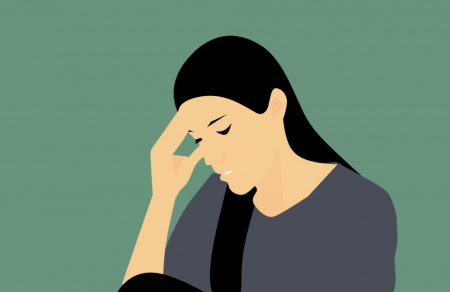Bipolar Disorder and Addiction: Everything You Need to Know
Bipolar Disorder is a mental health condition that affects between 1-5% of people.1 It causes episodes of extreme mood with symptoms that really impact people’s quality of life.
People with Bipolar Disorder are more likely to have a Substance Use Disorder than others.2 Having both Bipolar Disorder and addiction can be challenging, for the person and their friends and family. Their treatment can be more complicated. That’s why it’s important that people with Bipolar Disorder and addiction get the right care.
If you, or someone you know, is struggling with Bipolar Disorder and addiction, help is available.
Rehab Costs & Options for Alcohol | Drugs | Other addictions
Bipolar Disorder
People with Bipolar Disorder experience episodes in which their mood is either extremely low, or inappropriately high.
There are four types of episodes people with Bipolar Disorder can experience:
- Depressive episodes (depression)
- Manic episodes (mania)
- Hypomanic episodes (hypomania)
- Mixed episodes
These episodes last for weeks to months at a time. We are not talking about those ups and downs we can all have from day to day when stressed. Between episodes, people can experience periods when their mood and fluctuations in their mood seem normal
The episodes of extremes they experience are at least two weeks long and vary in severity depending on the underlying factors in their illness, whether an addiction is present and on whether they’re receiving any treatment.
Why see a psychiatrist at Castle Craig.
Bipolar Disorder Symptoms
Depressive Episodes
People in a depressive episode might experience the following:
- Intense feelings of low mood
- Lack of interest in activities that usually bring them joy
- Feeling low in energy
- Sleeping too much, or struggling to sleep at all
- Changes in appetite
- Gaining or losing weight without intending to
- Difficulty concentrating
- Decreased motivation
- Feelings of worthlessness
- Thoughts of hurting themselves or taking their own life
The symptoms of a Bipolar depressive episode are the same symptoms seen in Depression. Many people with Bipolar are actually often first diagnosed with Depression.
Is Bipolarity a Catalyst for Addiction?

Manic Episodes
Mania, or manic episodes, are when the person has an inappropriately elevated mood. The idea of having an elevated mood might not sound problematic, but mania can cause a range of distressing and even dangerous symptoms.
People in a manic episode might experience the following:
- Feeling as if they have extreme powers or abilities- sometimes these are completely convincing to the person,while to others it seems clear they are out of touch with reality – i.e. psychotic
- Extreme physical overactivity
- Constantly having new ideas and starting new projects
- Spending large amounts of money or getting into debt
- Acting in more risky ways
- Lack of sexual inhibition
- Reduced need for sleep
- Talking excessively
Hypomanic Episodes
Hypomanic episodes cause similar symptoms to manic episodes but are less severe. Hypomanic symptoms are usually easier to manage. The person is still in touch with reality – i.e.not psychotic
Mixed Episodes
Mixed episodes cause depressive and manic symptoms at the same time, with extreme changes even within a few hours.
Types of Bipolar Disorder
In the category systems used by many psychiatrists today, bipolar disorder is divided into Bipolar Type 1 and Bipolar Type 2.
People with Bipolar Type 1 experience episodes of depression and true mania. People with Bipolar Type 2 experience episodes of depression and hypomania– the illness is milder.
Who can get Bipolar Disorder?
Around 1 in 50 people in the UK are likely to have Bipolar Disorder.3
Bipolar Disorder usually first shows in younger adults, between the ages of 15-19. However, sometimes people do not receive a correct diagnosis until later in life.
Bipolar Disorder appears to affect all genders equally.
How do you know if you have Bipolar Disorder?
Only an appropriately trained mental health professional can make a diagnosis of Bipolar Disorder. According to Bipolar UK, it can take up to 9.5 years for people to be correctly diagnosed perhaps because only the depressive periods have shown.4

To make the diagnosis a qualified health professional may carry out the following:
Medical History
To reach a diagnosis your mental health professional will take a medical history.
They might ask about:
- The symptoms you experience in your episodes
- How long do the episodes last for
- Current and previous medical problems
- Whether you take any medications regularly
- Whether you smoke
- Whether you use mind-altering substances
- Whether you drink alcohol and what the pattern is
- Whether anyone in your family has any physical or mental health problems
To gain a better understanding of the symptoms you’re experiencing, your health professional may want to speak to a friend or family member.
Physical Examination and Tests
Sometimes problems with our physical health can lead to changes in mood. Your health professional may want to rule out any physical health problems as causes. To do this they might carry out a physical examination and further tests. There is no test that pinpoints bipolar disorder.
Mood Diary
If your health professional needs more information, they might ask you to keep a mood diary for a period of time.
How can Bipolar Disorder affect your life?
Bipolar Disorder can have a profound impact on the lives of those it affects. The symptoms caused by Bipolar Disorder can lead to a lot of stress for the affected individual and their loved ones.
Bipolar Disorder can affect:
Work
The majority of people with Bipolar Disorder are not in full-time employment.5 Both depressive and manic episodes can cause problems at work. Depressive symptoms such as low motivation and difficulty focusing can make it hard for people to get their work done. Manic symptoms such as hyperactivity and acting in risky ways can also affect how well people can do their jobs.
There are guidelines in place to protect people with mental health problems from discrimination. If your symptoms are causing difficulties at work, your employer should help you by making reasonable adjustments.
Relationships
Bipolar symptoms can create difficulties within relationships with your partner, family, and friends. Episodes of mania and depression can be challenging for loved ones.
During episodes, your symptoms might cause you to behave very differently. This behaviour might make it challenging for others to spend time with you.
It can help your loved one to understand that the way you’re behaving is due to a mental health condition. If your loved ones can take time to learn about Bipolar Disorder they will be better able to support you.
Suicide Risk
People with Bipolar Disorder are between 10-30 times more likely to take their own lives by suicide than the general population. Research has shown that 20-60% of people with Bipolar Disorder will attempt suicide at least once, and 20% will end their own lives with suicide.1
Does Bipolar Disorder cause addiction?
Having Bipolar Disorder increases your risk of developing an addiction.
People with Bipolar Type 1 are more at risk than people with Bipolar Type 2. At least 40% of people with Bipolar Type 1 will develop a Substance Use Disorder at some point during their life.2
Your risk of developing a Substance Use Disorder is even higher if you are male or under 65.6
What does Bipolar Disorder cause addiction to?
The most commonly abused substance by people with Bipolar Disorder is alcohol. Up to 62% of people with Bipolar will struggle with an alcohol misuse disorder at some point in their lives.2
Other substances commonly abused in Bipolar Disorder are:
- Cannabis (Up to 42% of people with Bipolar Disorder will suffer from a cannabis misuse problem)
- Cocaine (Up to 24%)
- Opioids (Up to 9%)2
Addiction can cause the symptoms that mimic Bipolar Disorder
People who drink heavily can get very low in mood even suicidal. At other times the drinking disinhibits them and, while intoxicated, behave recklessly. Unless the doctor knows about the drinking, the doctor may wrongly diagnose bipolar illness. Similarly, addiction to drugs such as cocaine MDMA or synthetic cannabinoids can make mood and behaviour so changeable and risky that is it looks just like bipolar illness.
What is the link between Bipolar Disorder and Addiction?
Addiction and bipolar illness can also occur in the same person.
- Bipolar Disorder and Substance Misuse Disorders share the same triggers
Traumatic and stressful life events such as the death of a loved one or relationship breakdown can trigger the onset of Bipolar Disorder. Stressful events are also well-known triggers of addiction.
- People may turn to drugs and alcohol to self-medicate the symptoms of Bipolar Disorder
The symptoms experienced in depressive and manic episodes can be incredibly distressing. Sometimes people turn to alcohol and other substances to help them cope.
Although this may temporarily alleviate some of the symptoms, it is not a healthy long-term solution.
What is comorbid Bipolar Disorder?
Comorbid Bipolar Disorder is when someone has Bipolar Disorder alongside another health problem.
You may have also heard it referred to as “co-occurring diagnosis” or “dual diagnosis”. Someone with Bipolar Disorder and Addiction has comorbid Bipolar Disorder.
It’s important to correctly diagnose any mental health problems that are co-occurring with addiction. This is because mental health conditions can change the way addiction affects people and the way it needs to be treated.
Research shows that people with Bipolar Disorder and Substance Use Disorder have worse outcomes:
- More frequent episodes of mood disturbance
- Longer episodes of mood disturbance
- Decreased quality of life
- Increased suicidal behaviour 2
In order to have the best treatment outcome, treatment must address both the addiction and the Bipolar Disorder.
Treating comorbid Bipolar Disorder and Substance Use Disorders
Treatment for Bipolar Disorder and Addiction varies from individual to individual. Treatment usually involves medication and a form of talking therapy such as Cognitive Behavioural Therapy.
Bipolar and Addiction Treatment focuses on helping you:
- Safely withdraw from alcohol and other substances you may be addicted to
- Understand your diagnosis of Bipolar Disorder and how it affects you
- Reduce the frequency, length and severity of mood episodes
- Learn how to manage your symptoms without using substances
- Develop healthier thought and behaviour patterns
How do I get Bipolar Disorder and Addiction treatment?
Successfully treating a dual diagnosis of Bipolar and Addiction requires expert care.
At Castle Craig, we are highly experienced in treating people with Bipolar Disorder and Addiction. For your personalised assessment and treatment plan, contact Castle Craig today.
References:
- Dome P, Rihmer Z, Gonda X. Suicide Risk in Bipolar Disorder: A Brief Review. Medicina (Kaunas). 2019;55(8):403. Published 2019 Jul 24. doi:10.3390/medicina55080403
https://www.ncbi.nlm.nih.gov/pmc/articles/PMC6723289/
- Cerullo MA, Strakowski SM. The prevalence and significance of substance use disorders in bipolar type I and II disorder. Subst Abuse Treat Prev Policy. 2007;2:29. Published 2007 Oct 1. doi:10.1186/1747-597X-2-29
https://www.ncbi.nlm.nih.gov/pmc/articles/PMC2094705/
- Marwaha S, Sal N, Bebbington P. ADULT PSYCHIATRIC MORBIDITY SURVEY 2014. Health and Social Care Information Centre; 2014. https://files.digital.nhs.uk/pdf/2/k/adult_psychiatric_study_ch9_web.pdf. Accessed January 28, 2022.
https://files.digital.nhs.uk/pdf/2/k/adult_psychiatric_study_ch9_web.pdf
- Bipolar Commission research reveals a delay of 9.5 years to get an accurate diagnosis of bipolar. Bipolar UK. https://www.bipolaruk.org/Blog/bipolar-commission-research-reveals-delay-of-95-years-to-get-accurate-diagnosis-of-bipolar. Published 2021. Accessed January 28, 2022
- Bowden CL. Bipolar disorder and work loss. Am J Manag Care. 2005;11(3 Suppl):S91-S94.
https://pubmed.ncbi.nlm.nih.gov/16097720/
- Franciso
Zamora-Rodríguez FJ, Sánchez-Waisen-Hernández MR, Guisado-Macías JA, Vaz-Leal FJ. Substance use and course of bipolar disorder in an inpatient sample. Actas Esp Psiquiatr. 2018;46(5):183-191.
https://www.actaspsiquiatria.es/repositorio//20/115/ENG/20-115-ENG-183-91-674894.pdf



